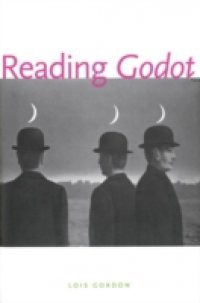Waiting for Godot has been acclaimed as the greatest play of the twentieth century. It is also the most elusive: two lifelong friends sing, dance, laugh, weep, and question their fate on a road that descends from and goes nowhere. Throughout, they repeat their intention âLet’s go,” but this is inevitably followed by the direction â(They do not move.).” This is Beckett’s poetic construct of the human condition.Lois Gordon, author of The World of Samuel Beckett, has written a fascinating and illuminating introduction to Beckett’s great work for general readers, students, and specialists. Critically sophisticated and historically informed, it approaches the play scene by scene, exploring the text linguistically, philosophically, critically, and biographically. Gordon argues that the play portrays more than the rational mind’s search for self and worldly definition. It also dramatizes Beckett’s insights into human nature, into the emotional life that frequently invades rationality and liberates, victimizes, or paralyzes the individual. Gordon shows that Beckett portrays humanity in conflict with mysterious forces both within and outside the self, that he is an artist of the psychic distress born of relativism.

